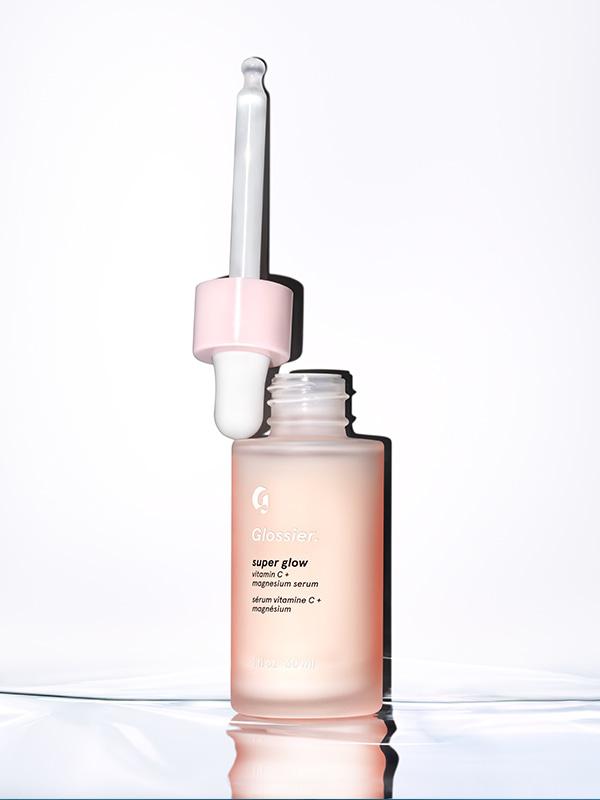Everyone I Know With Amazing Skin Uses This One Scientific Product

From bakuchiol to CBD, 2021 has already seen it's fair share of trending skincare ingredients, and I've tried them all. From overcoming my resistance to retinol to embracing a more pared-back approach to my skincare routine, I love experimenting to work out which ingredients are truly worth putting on my skin.
There's one key ingredient, however, that I've wholly neglected to sing the praises of this year. Despite using it every single day in my own routine, this ingredient has been somewhat overlooked in favour of the buzzy new launches that have been leading the way. Yet ask anyone with amazing skin which scientific ingredient it is that they swear by, and I guarantee it will be this one.

The ingredient in question? Vitamin C. Also known as ascorbic acid, vitamin C might not be anything new, but it's certainly a bit of a wonder ingredient if you aren't already using it. Found naturally in a wide range of fruit and vegetables, it's essential to help maintain a healthy complexion by protecting your skin cells and promoting healing.
As someone with acne-prone skin, I started using a vitamin C serum daily when a facialist advised me that vitamin C is a great ingredient to use if you're looking to fade pigmentation or dark spots caused by old blemishes. But I was interested to find out what other benefits this ingredient has to offer. After all, since using it regularly, I've noticed that my scarring has diminished and my complexion looks all-around brighter and healthier.
To find out, I asked two skin experts for the professional angle on all things vitamin C—including what it does, how to use it and what the best vitamin C products on the market are. Keep scrolling to find out.
The benefits of vitamin C

"Vitamin C is a marketer's dream, as we all know it’s healthy," explained Georgie Cleeve, founder of skincare brand Oskia. "For skin, it not only plays a vital role in cell health but has hugely beneficial effects on skin condition. From reducing hyperpigmentation and evening skin tone to reducing fine lines and making skin stronger, suppler, healthier and more glowing."
Lisa Franklin, an award-winning facialist and skin salon owner, agrees. "Vitamin C has so many benefits for the skin. It's an antioxidant, increases collagen synthesis, boosts skin luminosity and smoothes skin tone," she explained. "Topical application of vitamin C has been shown to reverse some of the age-related structural changes in the dermis and has also been shown to prevent and treat UV-induced photodamage."
Rushing out to stock up on vitamin C serums yet?
The flip side of vitamin C

"However, there are also huge problems with using vitamin C," warned Cleeve. "Mainly, its famous instability and ability to oxidise almost immediately. Additionally, its penetration to skin cells is also problematic." This means that choosing a formula that will actually benefit your skin can be tricky.
Thankfully, there have been huge developments in the production of vitamin C products this year alone. "The quest for stable vitamin C derivates has caused a vast amount of research and many new derivates," said Cleeve. "The most stable form, which can be used at lower levels, is the oil-soluble ascorbyl tetraisopalmitate, which has been clinically proven to be hugely effective at lower levels due to its stability and penetration qualities." Keep your eyes peeled for it in some of my vitamin C skincare picks below.
Using vitamin C

"I believe very strongly that in your 20s, protection is key," said Cleeve. "Retinols can wait until your 30s (unless you have a skin condition you want to treat), but vitamin C is perfect for all ages above 16."
Franklin is keen to point out how beneficial vitamin C is to combat early signs of ageing, too. "It regulates collagen synthesis," she says. "Regular application will decrease wrinkles, reduce protein fibre damage and smooth the skin's surface."
The good news is that it works quickly, especially when you're using it morning and night. "Some people claim a brightness almost immediately, but expect six weeks before visible differences occur," advised Cleeve.
"Regular topical application for at least three months will show an overall smoother, brighter, younger-looking complexion," Franklin explained. "People with dry skin will notice improved moisturisation, and acne sufferers will notice reduced inflammation."
Choosing a vitamin C formula

All skin types can benefit from using vitamin C. Although, Franklin pointed out that sensitive complexions might experience some irritation to start with, while Cleeve advised that those with pigmentation, dullness, and acne will see a more marked result. When it comes to choosing a vitamin C formula, though, what should we be looking out for?
"Be cautious not to fall for the 'the higher percent is better' line," said Cleeve. "It's about formula and clever formulations. As an easy guide, if a vitamin C product changes colour or has a colour or smell, it has oxidised. If it contains water, be cautious. Ideally, oil-soluble capsules or airless pumps are a must—and choose a brand you trust with good science and proof."
Franklin also has a trick up her sleeve. "Look for products that also contain vitamin E, as it stabilises vitamin C for maximum skin protection," she advised.
Keep scrolling to shop the best vitamin C products:
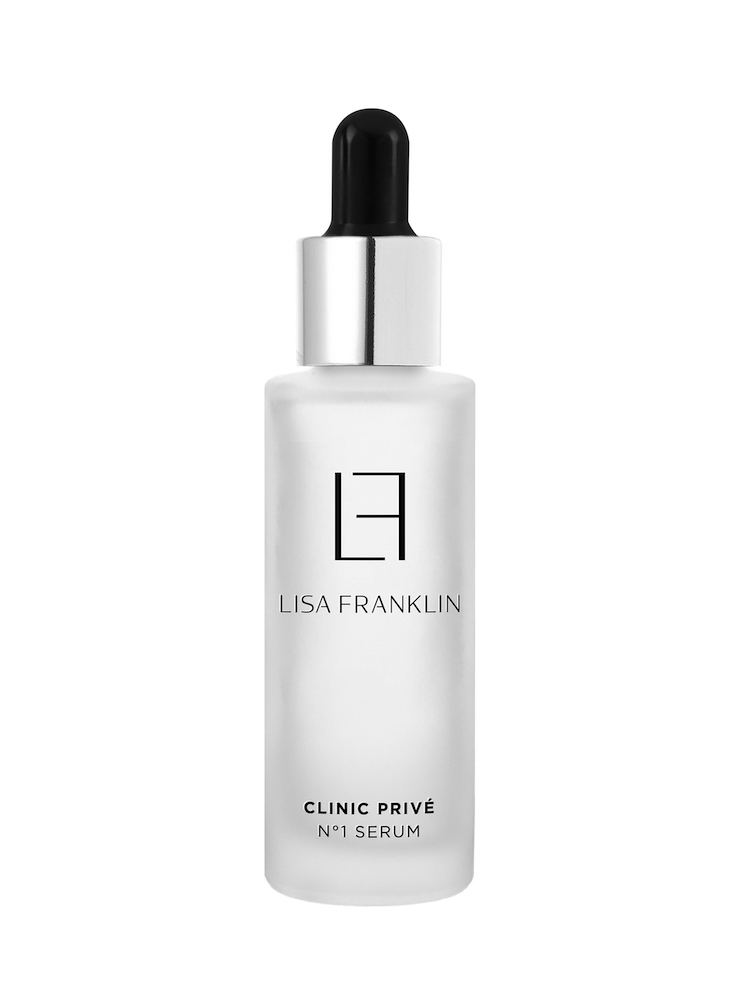
"It's a soothing yet ultra-effective serum containing both vitamin C and E," says Franklin. "The vitamin C used is ascorbyl tetraisopalmitate—a revolutionary form of vitamin C that absorbs deeper and faster into the skin than most other forms currently on the market."
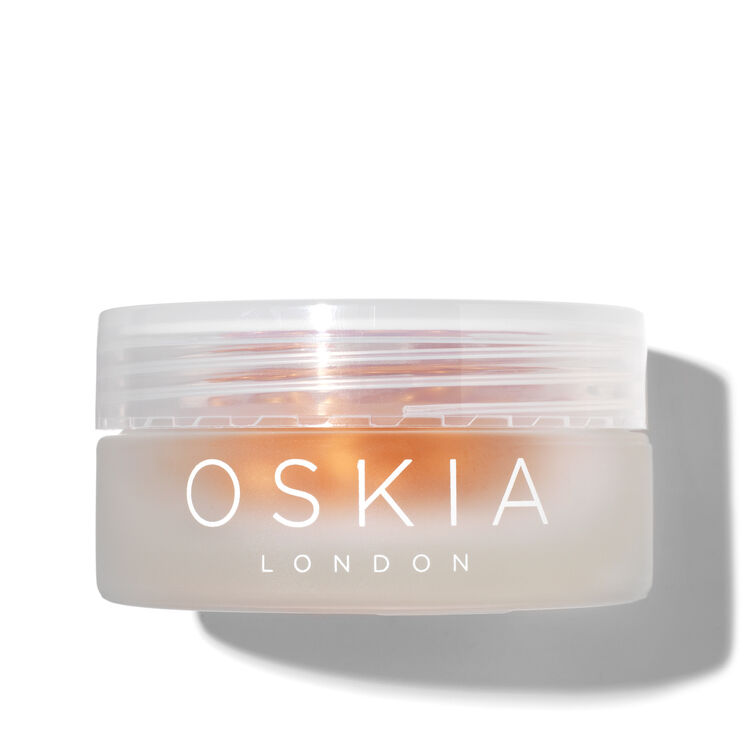
It's no surprise that these are the vitamin C picks from Oskia founder Georgie—but they're seriously impressive. "Super C Smart Nutrient Beauty contains 2% ascorbyl tetraisopalmite, amongst other actives," Cleeve explained. You just twist off the top of the capsule to release a perfectly proportioned dose of the serum, which you can apply to clean skin morning and night.
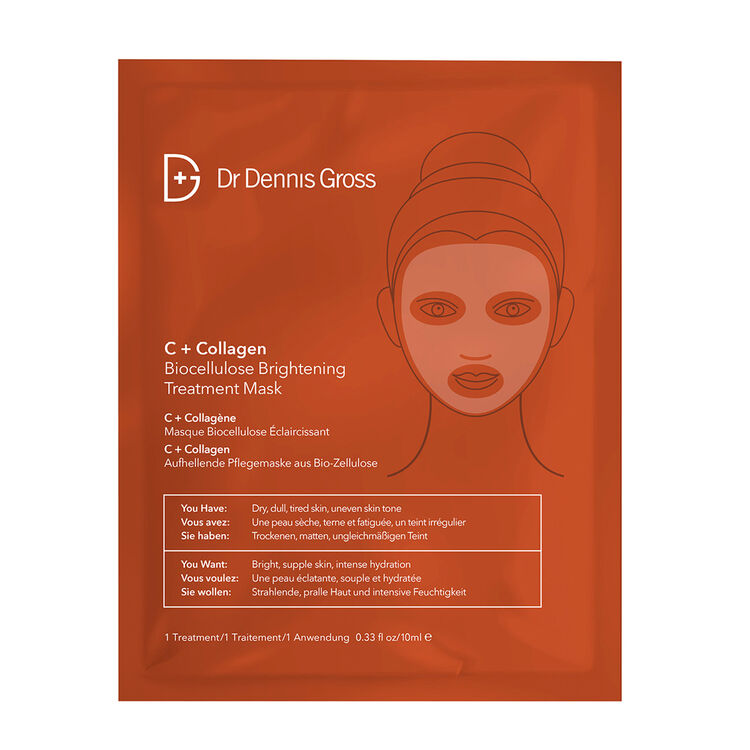
I love a sheet mask, and I adore science-led brand Dr. Dennis Gross, so this is a match made in heaven for me. It contains vitamin C (naturally) to instantly brighten and revive tired skin, but it also contains niacinamide, a water-soluble vitamin that diminishes pores and improves hydration in the skin.
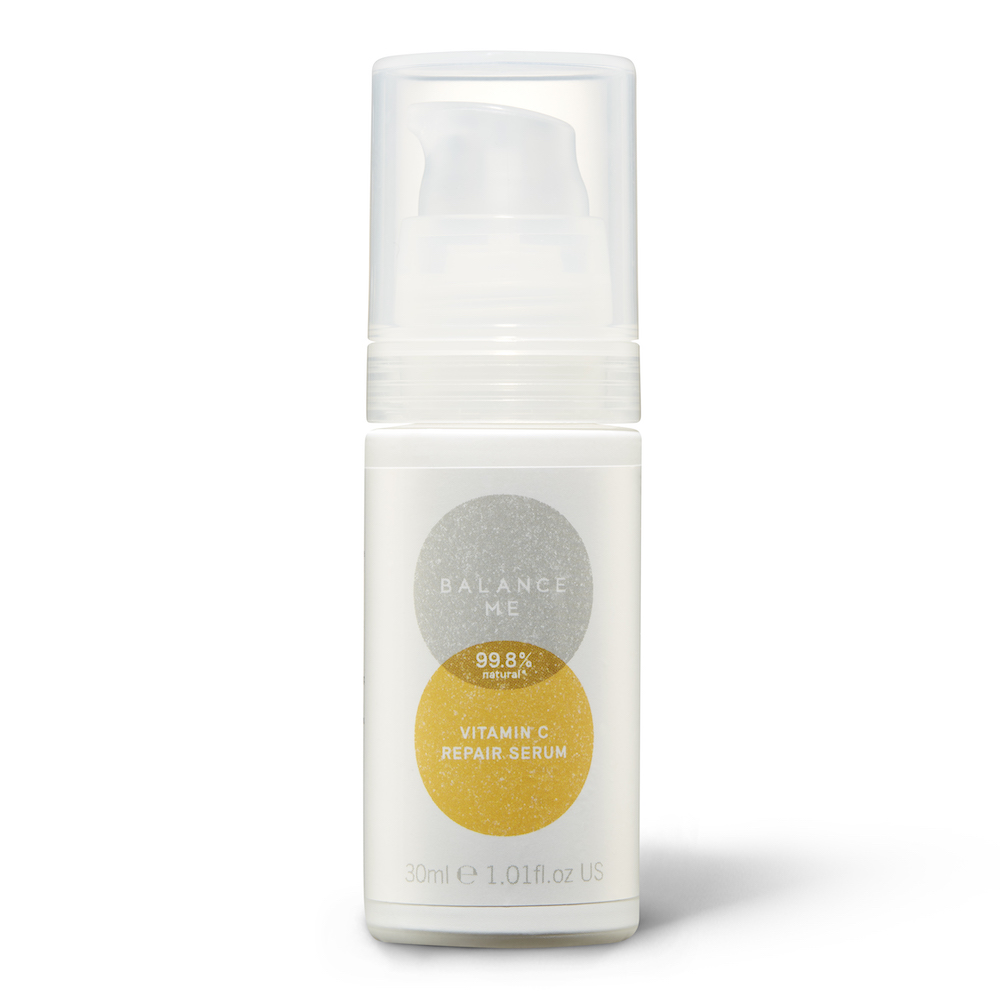
Natural skincare brand Balance Me has recently undergone the chicest of transformations, and I love its simple new packaging. This new-look bottle contains the brand's same 99.8% natural vitamin C serum, which makes light work of reducing pigmentation and evening skin tone without any irritation—even if you're prone to sensitivity.
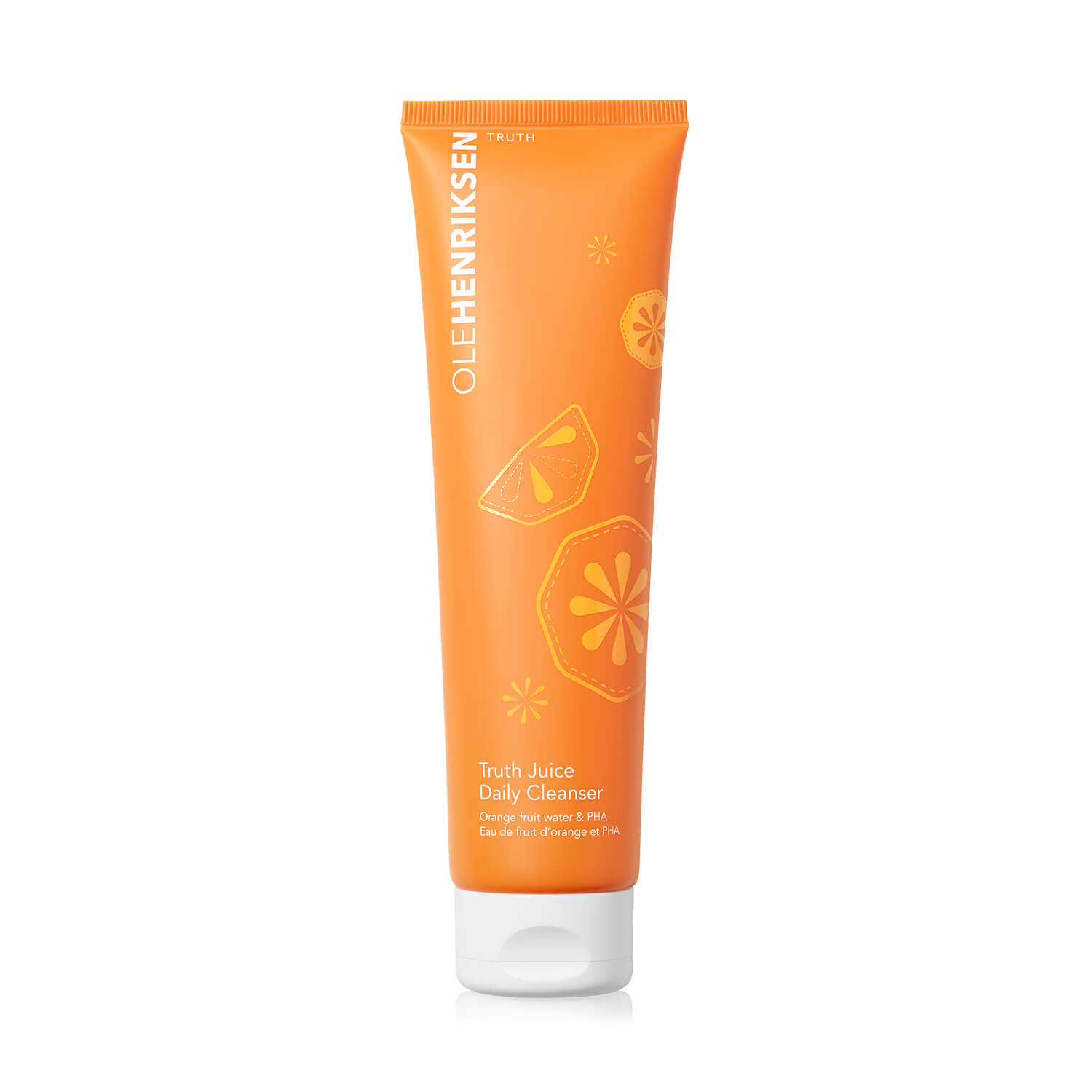
Honestly, everything in Ole Henriksen's Truth collection is amazing, but a vitamin C infused cleanser is particularly hard to come by. Boasting a rich, creamy lather, it gently sweeps away makeup and grime without stripping away essential oils and moisture. Your skin will be left glowing once you rinse it clean.
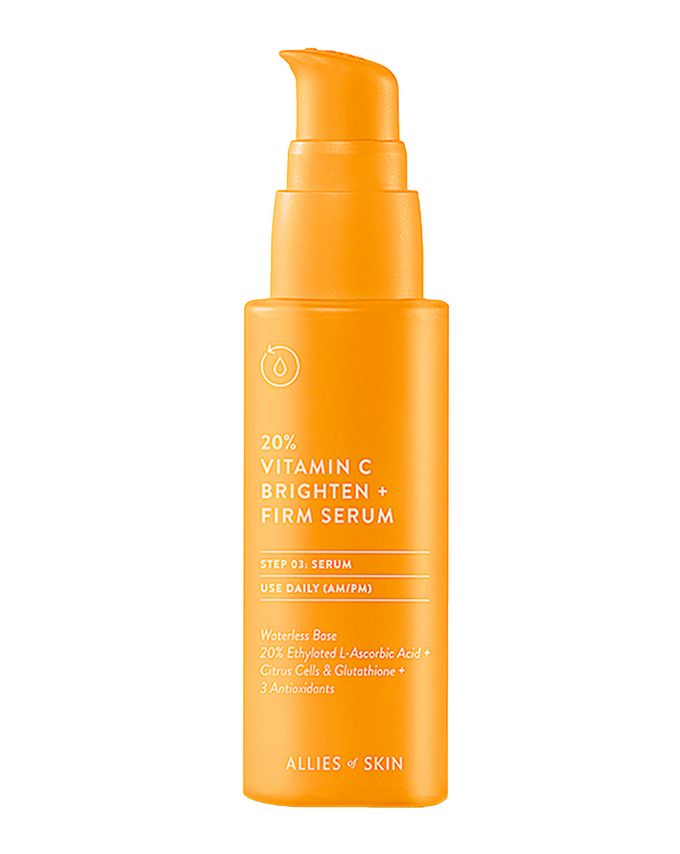
This is a next level vitamin C products that uses an extremely stable form of 20% pure L-ascorbic acid that can deeply penetrate your skin to provide antioxidant protection, strengthen your skin barrier and promote cellular renewal. The result? Undoubtedly firmer and brighter skin.
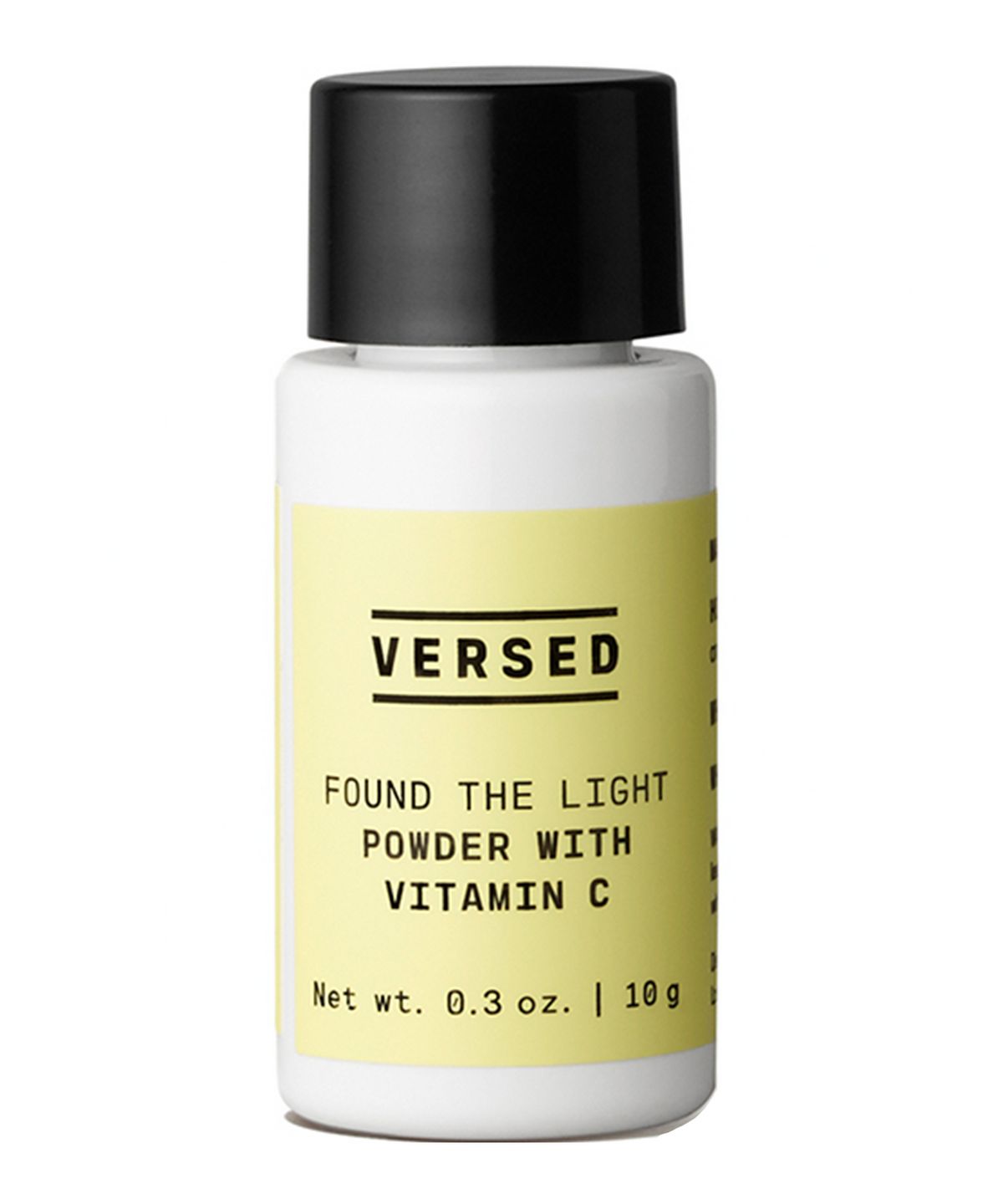
If you've already found your dream moisturiser or cream but want to add the benefits of vitamin C to your routine, look no further than this fan-favourite powder from our sister skincare brand, Versed. Simply mix this powder into your existing serums and creams, and your complexion will soon have a luminous, lit-from-within glow.
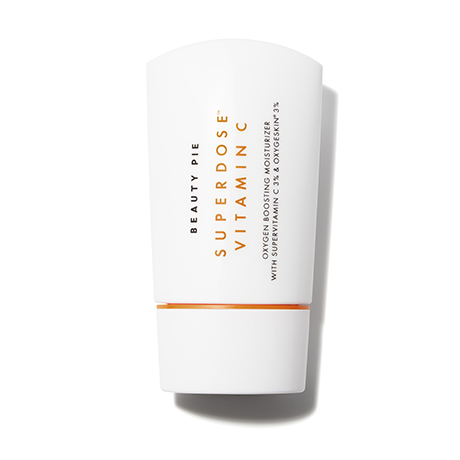
Price shown is the subscriber price.
Formulated with Nikkol VC-IP—a powerful form of vitamin C—this daily moisturiser is a great bet for any complexion that needs a little rejuvenation. It boasts reoxygenating properties to improve both the firmness and elasticity of skin and boost brightness.
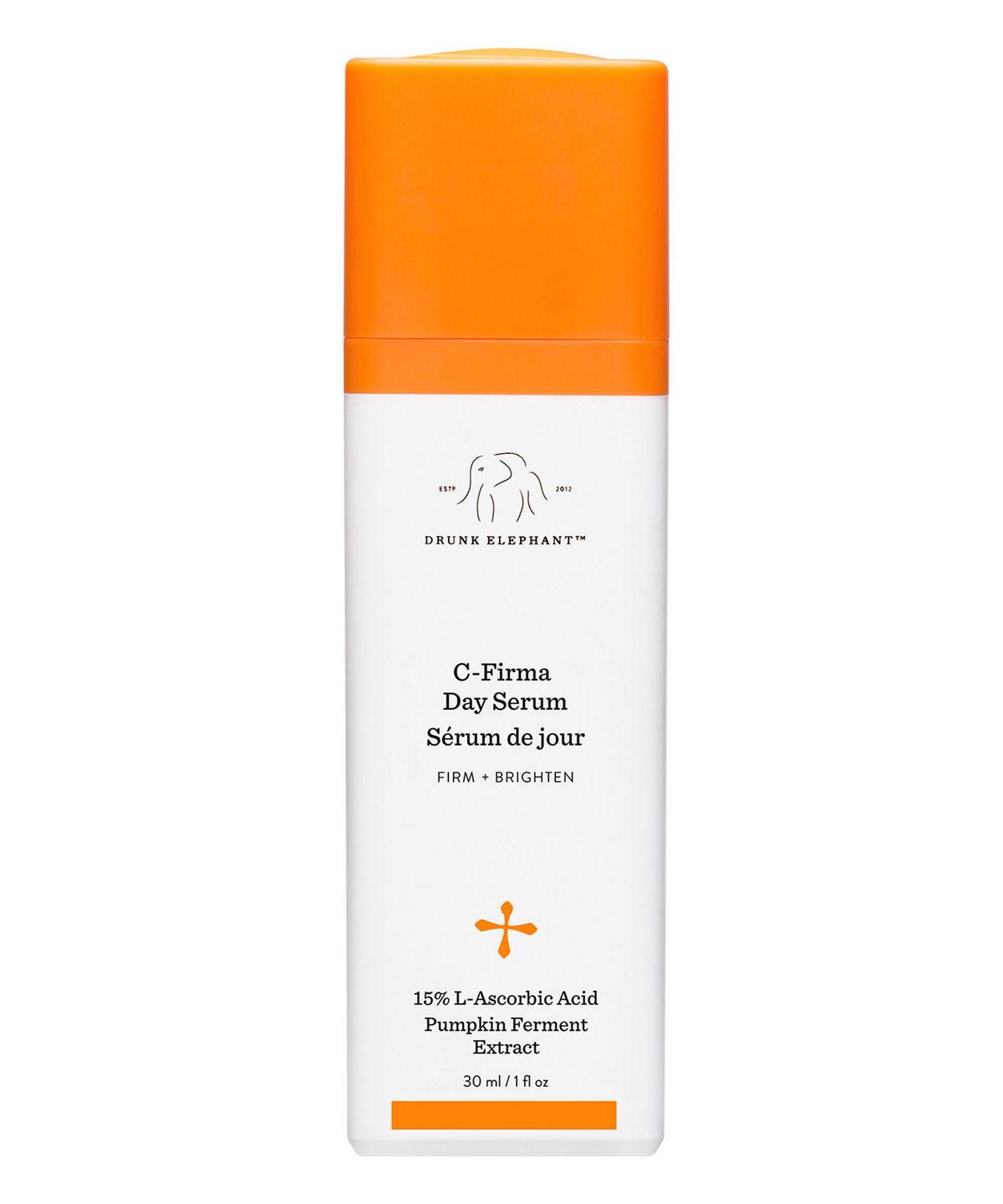
Sure, it's packaging may be cute, but Drunk Elephant's most impressive attribute is its performance—and this product is one of the brand's stand-outs. The rich, orange-toned serum contains pure ascorbic acid alongside hyaluronic acid and a complex of antioxidants to brighten skin gradually. Store it in the fridge to keep it fresh and to give you a cool kick with every drop.
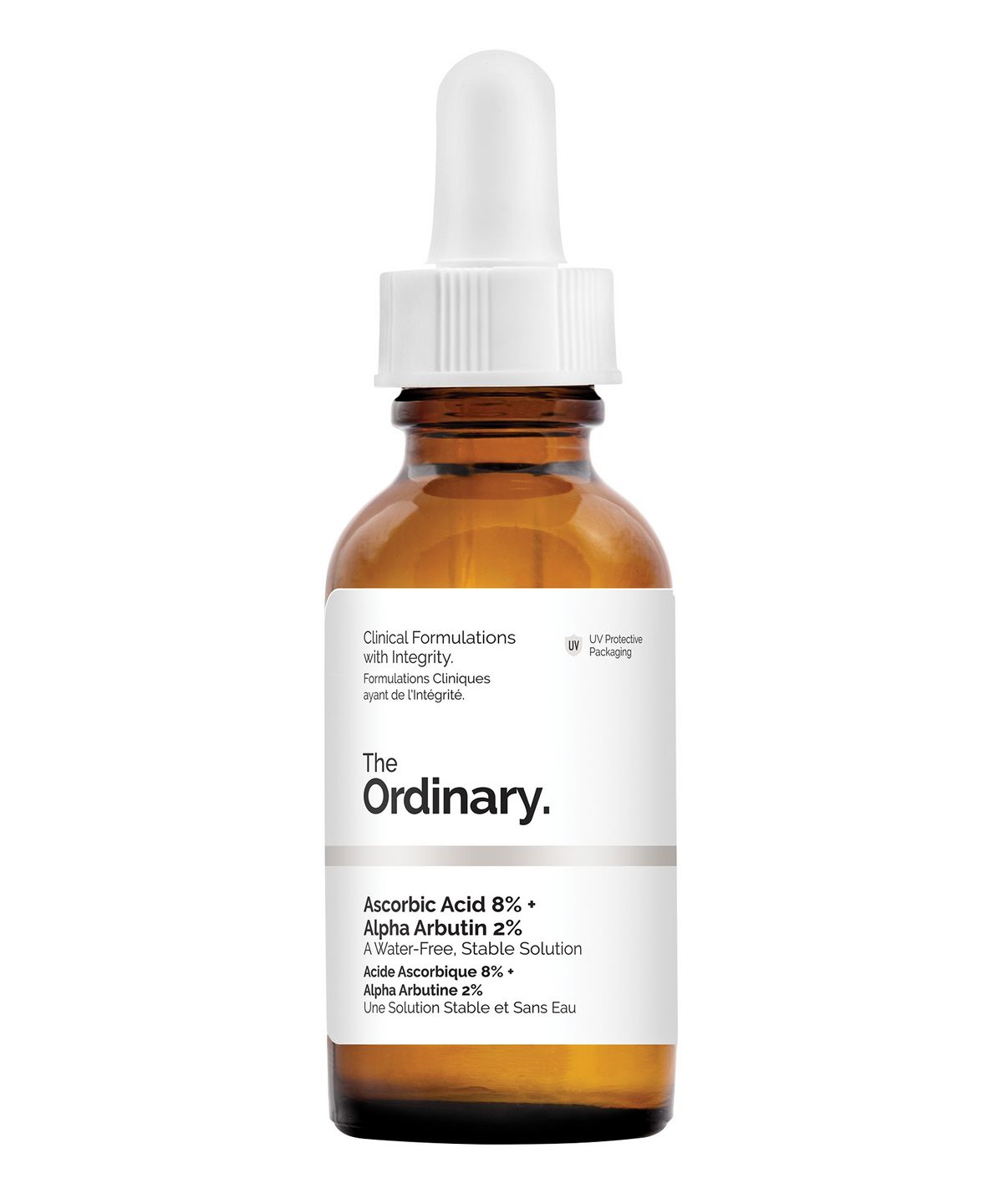
No skincare roundup would be complete without an appearance from The Ordinary, and of course the brand is already well-versed in all things vitamin C. This potent, water-free formula combines it with another powerful brightening agent, alpha arbutin, and is a must-have for many beauty editors and influencers alike.
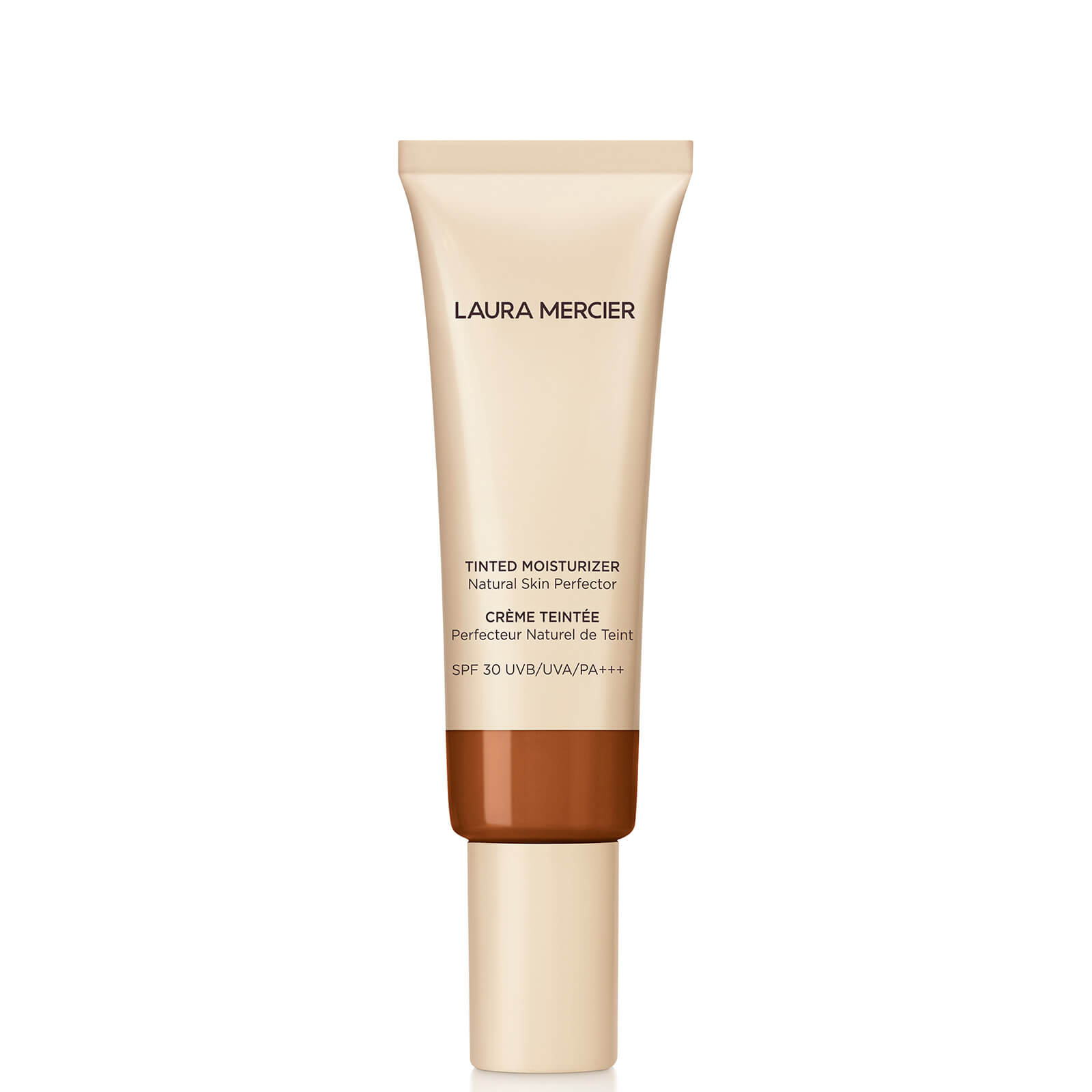
If you prefer your base products to be more skin tints than full-on foundations, the recently reformulated Laura Mercier Tinted Moisturisers will be right up your street. Dewier and more hydrating than the originals, they also contain an antioxidant-boosting blend of vitamins C and E to protect your skin while providing coverage. So damn clever.
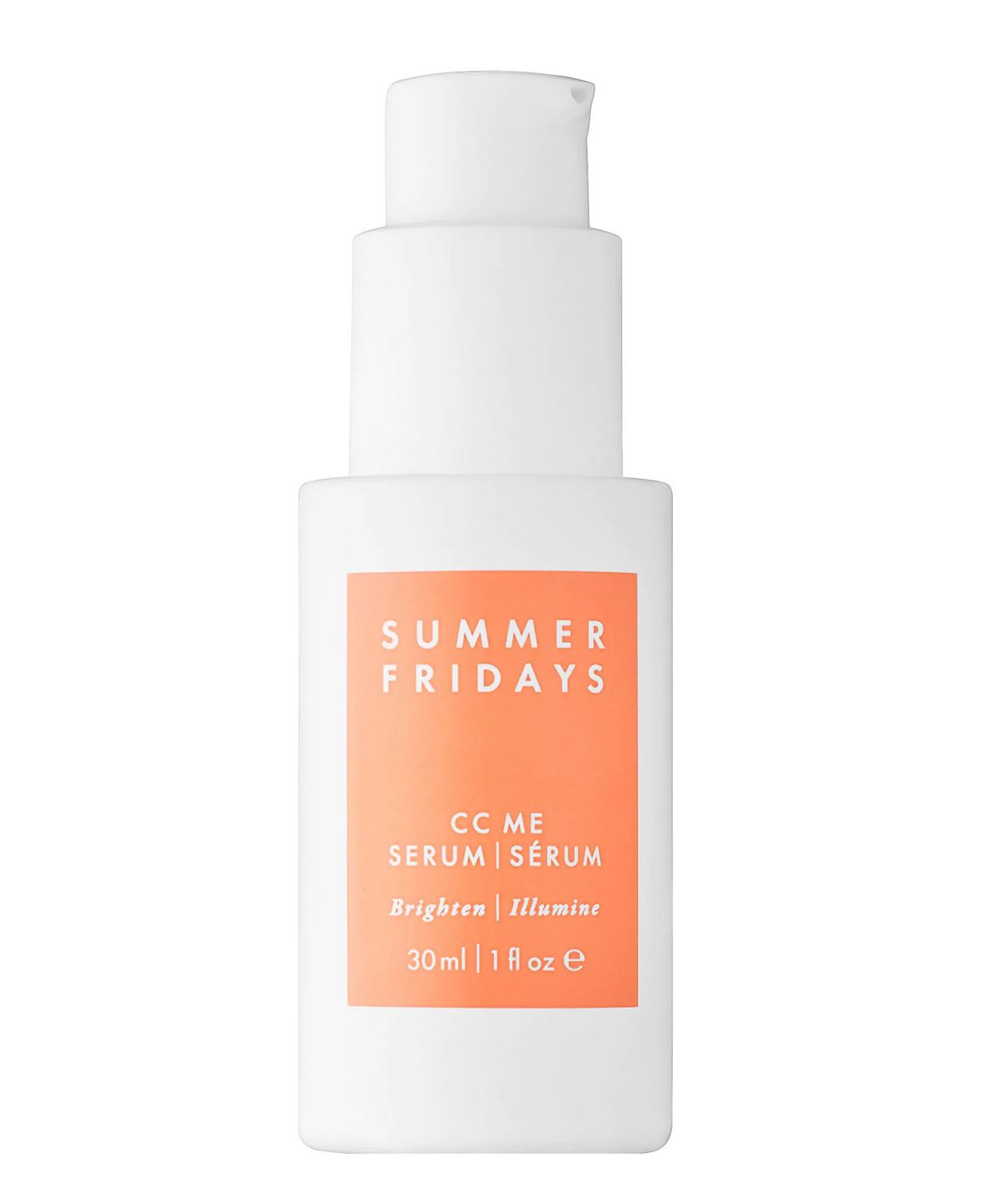
For those who are already self-proclaimed vitamin C fanatics, this is a product you'll definitely want to try. Featuring two superpowered forms of vitamin C, Summer Fridays' CC Me Serum delivers instant brightness while locking in moisture and reducing the appearance of dark spots and hyperpigmentation. It's odourless and more watery in its consistency, but that's no bad thing—in fact, it soaks into the skin quicker than many other serums and doesn't leave a tacky residue.
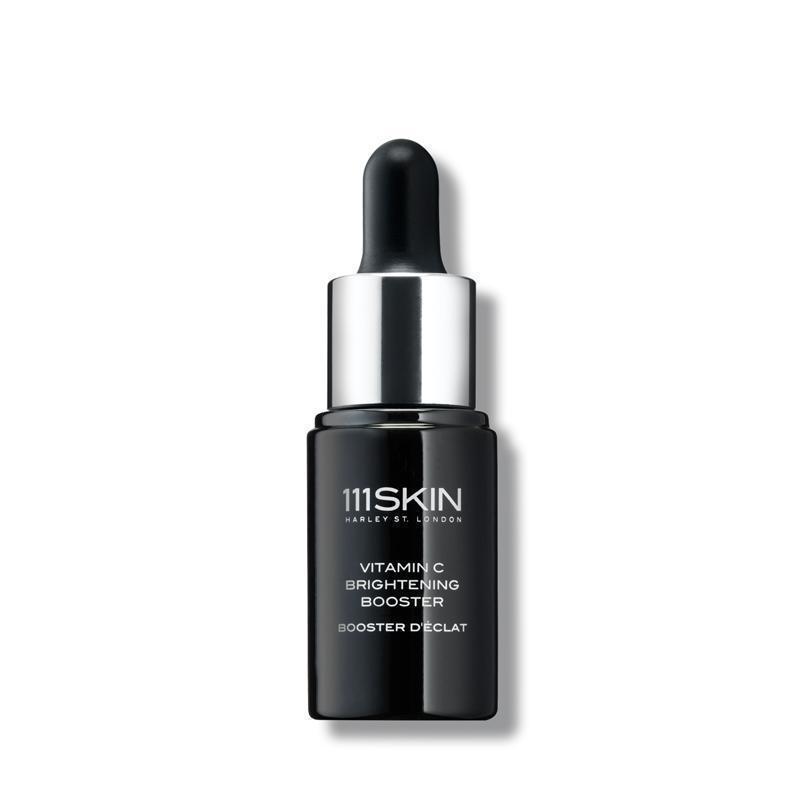
This innovative booster from celebrity-favourite skincare brand 111SKIN can be mixed with your favourite moistuiser or applied directly to your skin to combat pigmentation, age spots and uneven skin tone. This new version has been formulated with increased vitamin C levels, too, so it really packs a punch.
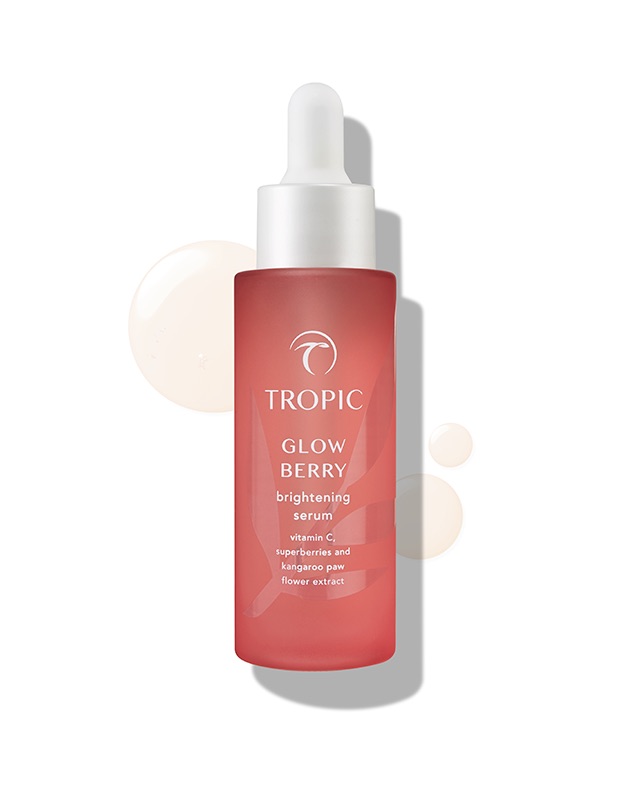
I'm always on the lookout for natural formulations, so when I came across this product from vegan beauty brand Tropic, I knew I had to try it. Now I use it regularly in the morning—six drops patted into my skin after cleansing. Within days my skin looked brighter and appeared tauter. Plus, it smells divine.
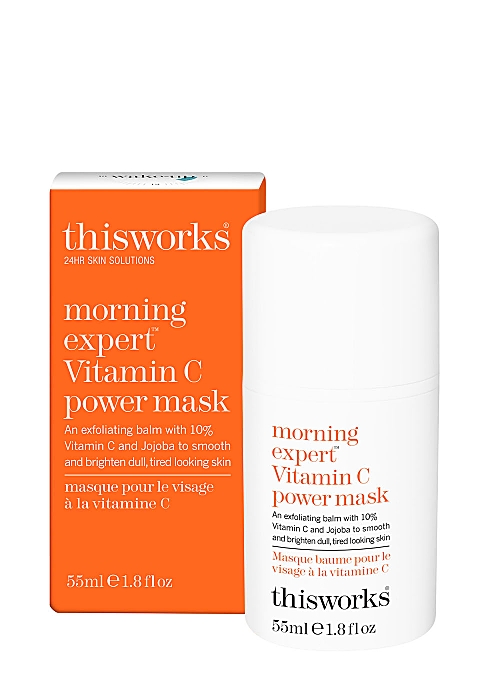
First up, this exfoliating mask uses airless technology packaging to keep the formula airtight for optimum efficacy. Clever! Second, it uses water-activated vitamin C granules that activate once you start massaging the product into your skin using damp fingertips to slough away dead, dull skin cells.
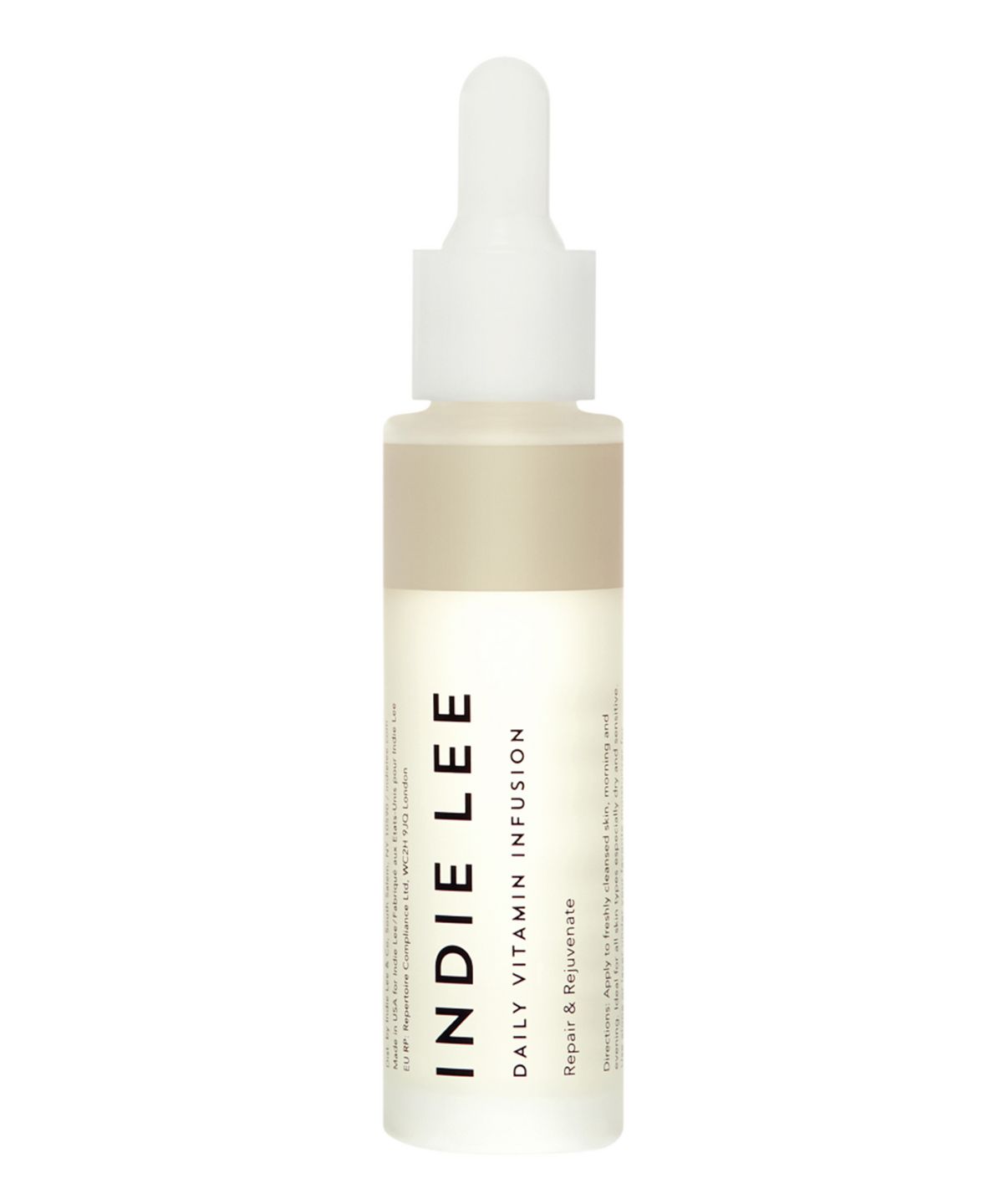
Those with sensitive skin should consider trying this serum from Indie Lee. Bursting with powerful vitamin C, it's also made up of soothing rose-hip and avocado oils as well as vitamins A and E to help rejuvenate the skin's surface. Apply to cleansed skin before layering with your favourite moisturiser for a glowy base layer. It even comes in a handy 10-milliliter travel size, which we recommend investing in first to trial it.
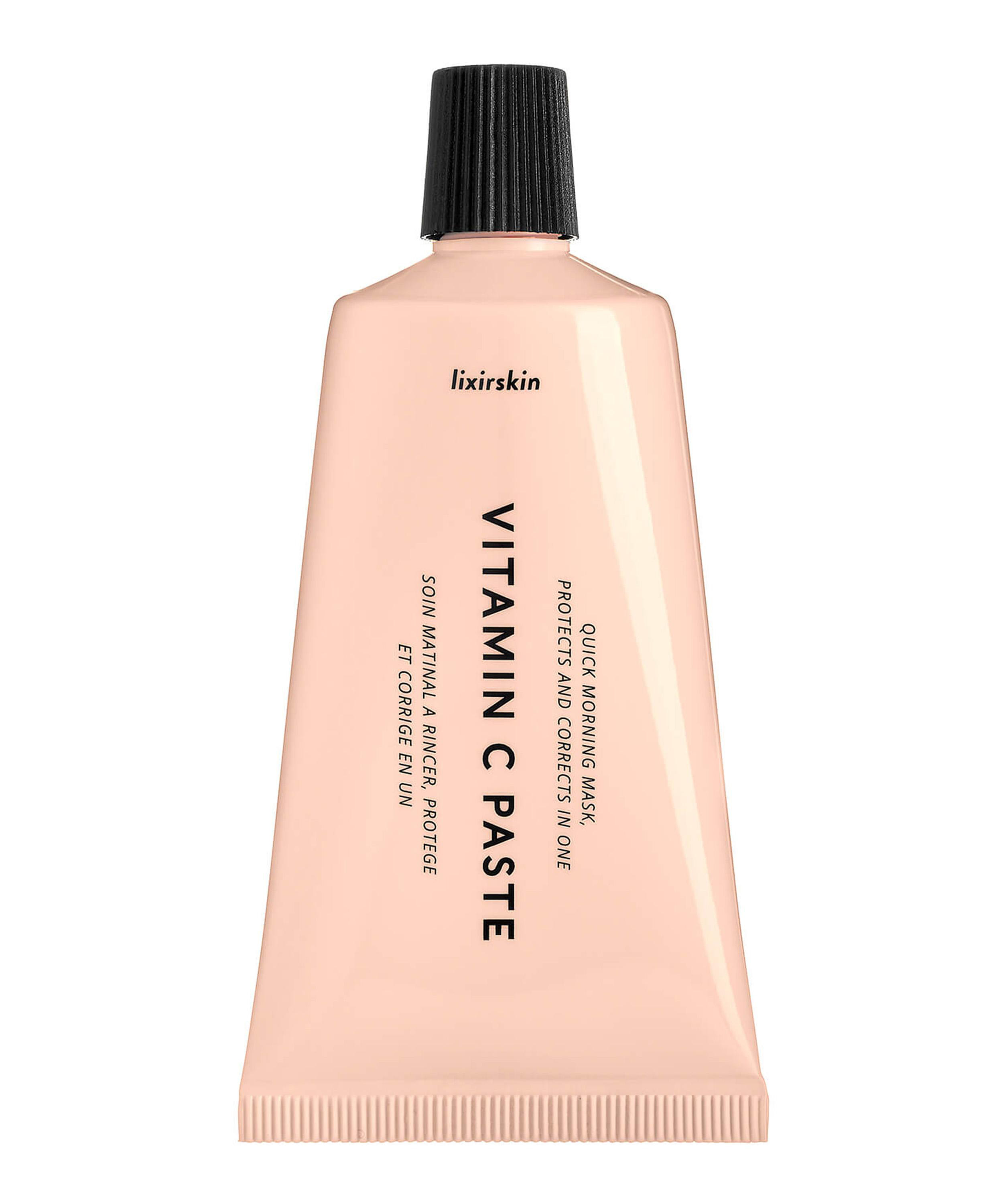
Unlike heavy face masks, Lixirskin's Vitamin C Paste gets to work on your skin quickly, meaning you can work it into your morning ritual without having to set the alarm an hour earlier. After cleansing, apply a pea-size amount to face, eye contour, lips, neck and décolletage. Once in place, dampen your fingers and massage it into the skin's surface. Leave it on for a couple of minutes, then remove with a warm, damp wash cloth. Trust me—your skin will feel as if it's just had a 30-minute facial.
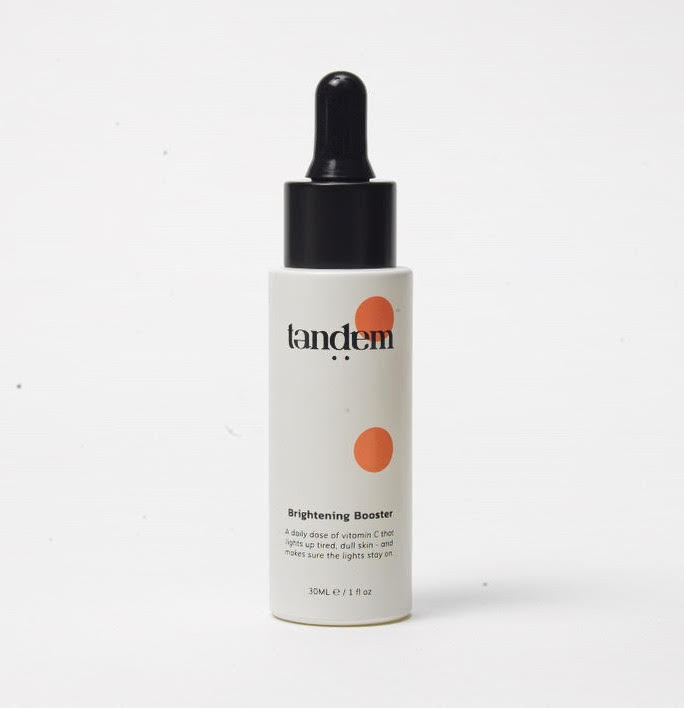
If you find the sheer number of skincare options on the market overwhelming, then get to know Tandem. It's a new skincare brand with a handful of hardworking formulas to simplify your routine. This powerful vitamin C booster contains that stable form of the good stuff—ascorbyl tetraisopalmitate—combined with olive squalane and vitamin E to brighten, smooth and soften your skin.
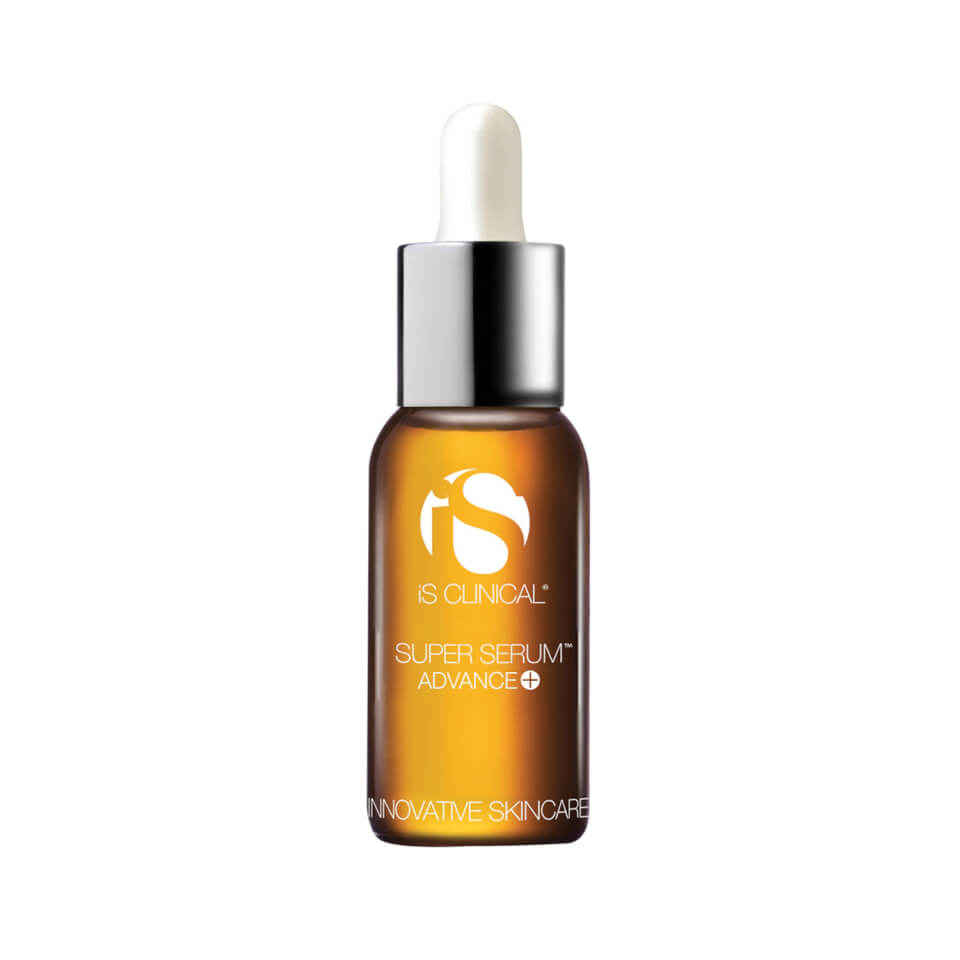
My current morning vitamin C serum of choice happens to be Rosie Huntington-Whiteley's favourite, too. I've previously sung its praises but the 15% concentration of L-ascorbic acid has genuinely diminished the appearance of some pretty severe acne scarring, and I'm not sure that I could be without it now.
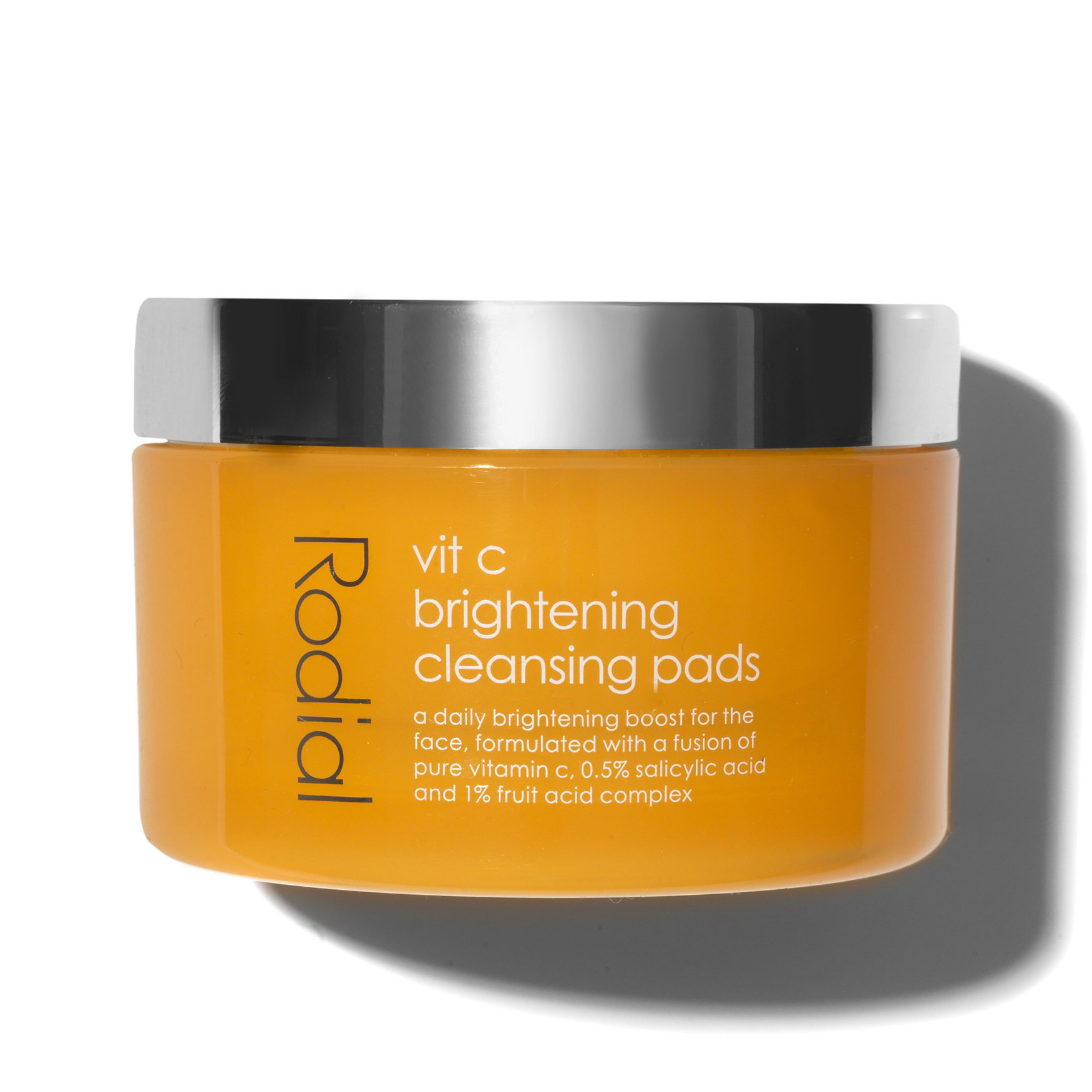
The road to radiant skin can be a long one, but these brilliant cleansing pads act as a shortcut. They contain pure vitamin C, de-clogging salicylic acid, and 1% fruit acid complex, all of which work together to brighten and revitalise the complexion. I use them just before bed and always wake up with glowy skin.
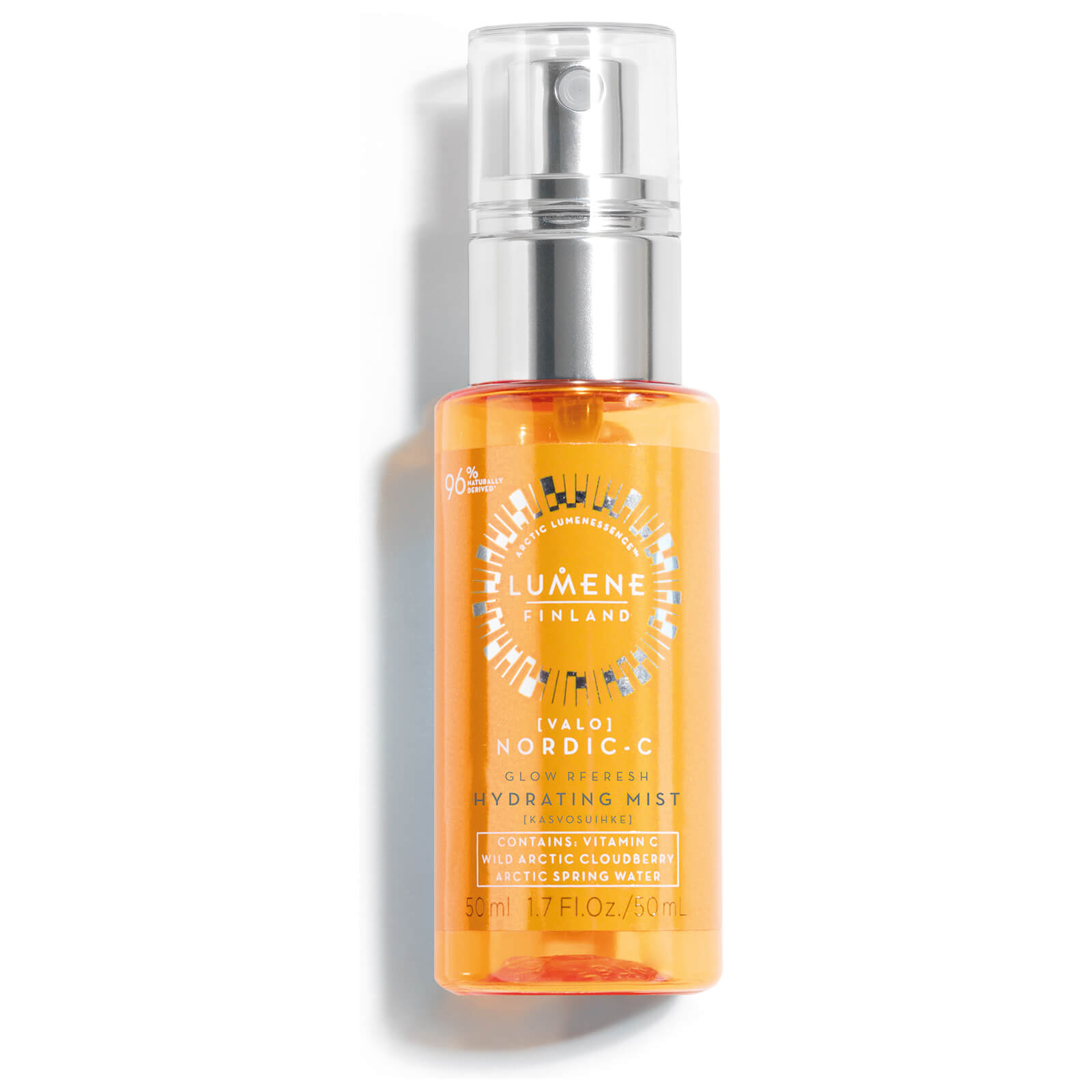
Lumene is one of my go-to skincare brands for great, affordable vitamin C options, but it's this glow-boosting facial mist that I've been enjoying recently. I use it in the morning after cleansing and over makeup in the afternoons for a luminous pick-me-up.
This post was originally published at an earlier time and has since been updated.
Next up, I swapped my expensive skincare routine for an under-£98 one and here's what happened.
Mica Ricketts is a freelance beauty editor, copywriter and regular contributor toBest Knockoff Luxury Clothing UK. She also writes for titles including Marie Claire UK, Refinery 29 and Cosmopolitan, and previously worked atBest Knockoff Luxury Clothing UK as Beauty Editor. With experience in both editorial and content management, she also works with beauty brands and small businesses on brand messaging and content strategy. As a busy mum of two, she is passionate about finding efficacious beauty products that can disguise all signs of tiredness with minimal effort.
